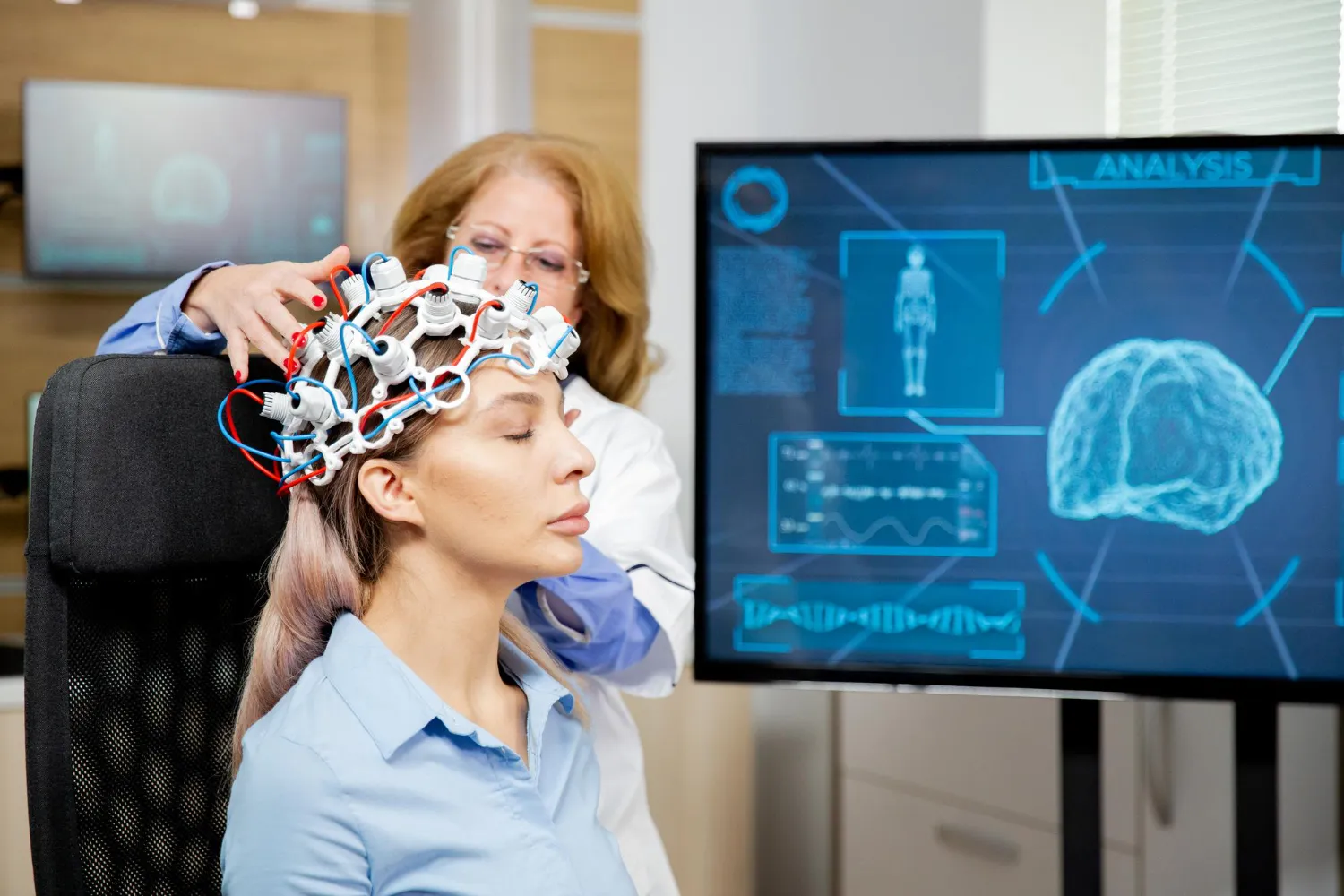Neurological Disorders: A Guide to Causes, Symptoms & Treatment
October 08, 2025 | By Dr. Nitin Malik

Your brain and nervous system act as your body's command center, controlling everything you think, feel, and do. When a problem arises in this complex network, it can affect your daily life in many ways. Understanding the basics of neurological disorders is the first step toward managing your health and finding the right care.
Navigating symptoms like memory loss, chronic headaches, or mobility issues can be confusing and stressful. Early diagnosis and care are essential for improving recovery and quality of life. Consulting a neurology specialist in Meerut can provide the clarity and treatment plan you need.
What Are Neurological Disorders?
Neurological disorders are conditions that affect the brain, spinal cord, and the nerves connecting them. Think of it as a disruption in your body’s communication system. These conditions can appear suddenly (acute) or develop over time (chronic). They range from common issues like migraines to serious, life-altering events like a stroke.
Common examples include:
- Alzheimer’s disease and other forms of dementia
- Parkinson’s disease
- Epilepsy and seizures
- Stroke
- Migraines
- Multiple Sclerosis (MS)
- Brain tumors
Common Causes of Neurological Disorders
There is often no single cause for a neurological disorder. Instead, they can result from a combination of factors.
Genetic Factors
Some conditions, like Huntington's disease or muscular dystrophy, are passed down through families.
Infections
Viruses and bacteria can damage the nervous system, leading to conditions like meningitis or encephalitis.
Injuries
Traumatic injuries to the head or spine can cause long-term neurological damage.
Lifestyle and Environmental Factors
Poor nutrition, smoking, excessive alcohol use, and high stress levels can increase your risk for certain disorders.
Vascular Issues
Problems with blood flow to the brain, such as blockages or bleeding, can lead to a stroke.
Age-Related Degeneration
As we age, nerve cells can naturally break down, contributing to conditions like Parkinson's disease or dementia.
Recognizing the Early Symptoms
Symptoms vary widely depending on the specific condition. However, some common warning signs should prompt you to see a doctor.
If you experience any of the following, it’s important to seek medical advice:
- Persistent or severe headaches
- Sudden changes in vision
- Memory loss or confusion
- Numbness, tingling, or weakness in your arms or legs
- Loss of balance or coordination
- Seizures or fainting spells
- Difficulty speaking or understanding speech
Ignoring these signs can allow the condition to worsen. An early diagnosis at a trusted brain and spine hospital can make a significant difference.
How We Diagnose Neurological Conditions
To determine the cause of your symptoms, our neurologists use a comprehensive diagnostic process. This helps us create a personalized and effective neurology treatment plan for you.
- Neurological Exam: A specialist will check your reflexes, muscle strength, balance, coordination, and mental state.
- Imaging Scans: MRI and CT scans create detailed pictures of your brain and spinal cord to identify tumors, damage, or other abnormalities.
- Electrodiagnostic Tests: An EEG (electroencephalogram) measures brain activity, while an EMG (electromyography) assesses muscle and nerve function.
- Blood and Fluid Tests: These can help detect infections, genetic markers, or other underlying issues. A lumbar puncture (spinal tap) may be used to examine the cerebrospinal fluid.
When to Seek Emergency Medical Care
Some neurological symptoms are medical emergencies that require immediate attention. Call an ambulance right away if you or someone else experiences:
- Sudden weakness or paralysis on one side of the body (a key sign of stroke)
- A severe, sudden headache, often described as the "worst headache of your life"
- A seizure that lasts longer than five minutes
- Sudden loss of vision or speech
- Loss of consciousness or unresponsiveness
Prompt medical care in these situations can be life-saving and may reduce the risk of long-term disability.
Advanced Neurology Treatment Options in Meerut
Treatment is tailored to your specific diagnosis, symptoms, and overall health. At Nova Hospital & Research Centre, we offer a range of advanced solutions.
- Medication Management: Prescription drugs can help manage symptoms like pain, seizures, tremors, and muscle stiffness.
- Physical and Occupational Therapy: Rehabilitation helps improve mobility, strength, and the ability to perform daily activities.
- Surgical Intervention: Our expert neurosurgeons can treat conditions like brain tumors, aneurysms, or severe epilepsy.
- Lifestyle Modifications: Our team provides guidance on diet, exercise, and stress management to support your brain health and slow disease progression.
Your Partner in Neurological Health
We understand that facing a neurological condition can be overwhelming for both patients and their families. At Nova Hospital & Research Centre, you are not alone. Our team, led by the best neurologist in Meerut, is dedicated to providing compassionate, comprehensive care every step of the way. We combine advanced diagnostics with effective treatments to ensure you receive the highest standard of neurological care.
Don’t let symptoms go unchecked. Take control of your well-being by speaking with an expert today.
Schedule Your Consultation Today
Your brain health is our priority. If you or a loved one is experiencing neurological symptoms, contact the experts at Nova Hospital & Research Centre. Our team is here to provide the answers and care you deserve.
Call us or book an appointment online to consult with a leading neurology specialist in Meerut.
